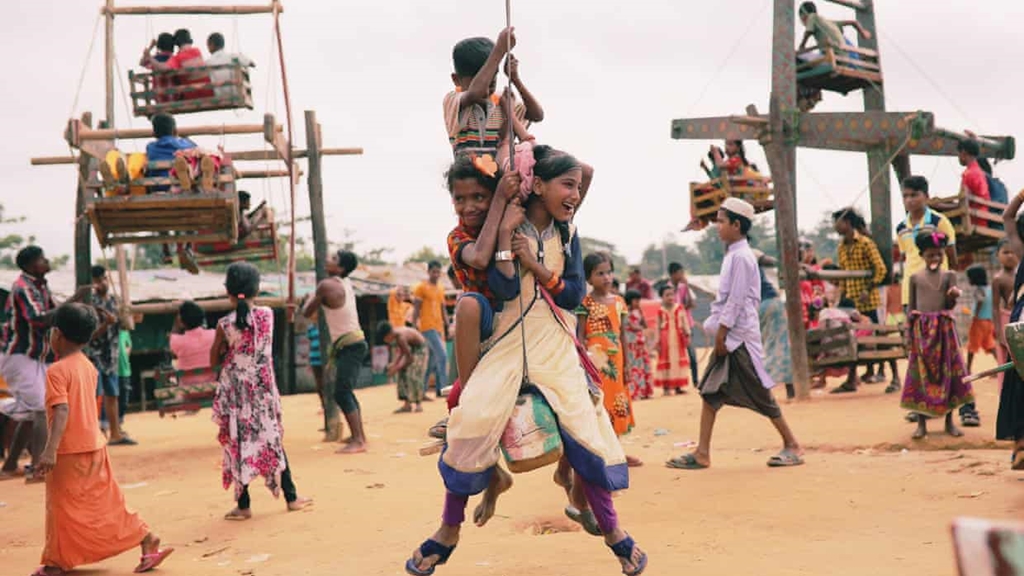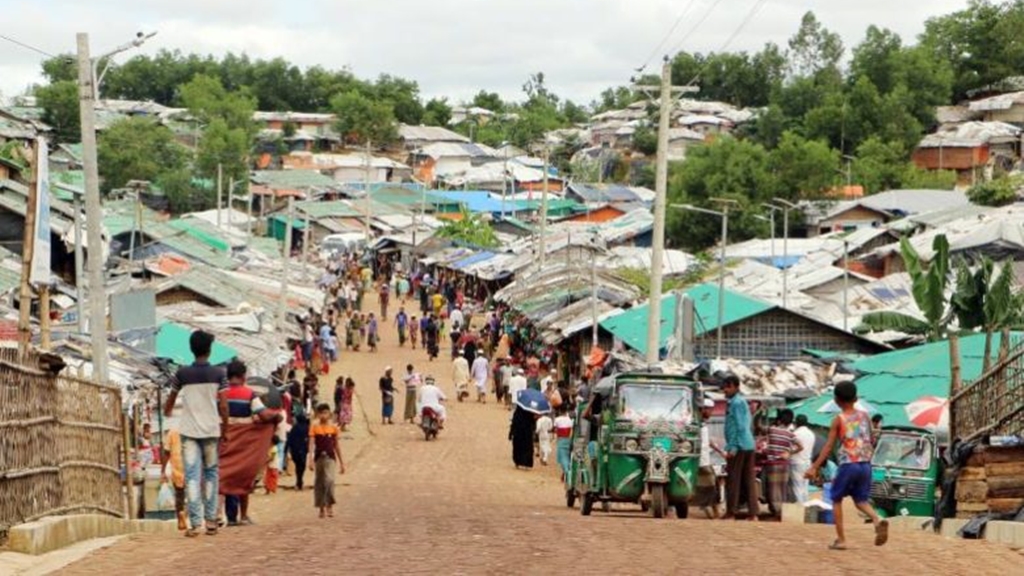
Bangladesh grants Rohingya refugee children access to education
- 31/01/2020
- 0
Children aged 11-13 will be first to benefit as government eases long-standing restrictions in effort to avoid ‘lost generation’
Bangladesh has confirmed it will lift restrictions on education for young Rohingya refugees, easing bans in place since the existing camps were established 30 years ago.
The government’s move to allow schooling for children aged 11-13 has been widely welcomed by activists and teachers.
“We don’t want a lost generation of Rohingya. We want them to have education. They will follow Myanmar curricula,” the country’s foreign minister, AK Abdul Momen, told reporters on Tuesday.
A statement put out by the UN on behalf of “the UN and humanitarian community” praised the decision. “We believe this is a positive step and a clear indication of the commitment by the government of Bangladesh to ensure access to learning for Rohingya children and adolescents, as well as to equip them with the right skills and capacities for their future and return to Myanmar when the conditions allow,” it read.
“In line with the government’s decision, the education sector for the humanitarian response in Cox’s Bazar now plans to pilot the introduction of the Myanmar curriculum in the Rohingya refugee camps starting in April, initially targeting 10,000 Rohingya students in grades six to nine. The use of the Myanmar curriculum will be expanded to other grades in a phased manner.”
More than 700,000 ethnic Rohingya fled to Bangladesh in 2017 after Myanmar’s military carried out a series of operations that the UN described as having “genocidal intent” against the minority, taking the total refugee population in Bangladesh to almost a million.
Activists have since been campaigning for access to education, warning that almost half a million Rohingya children are at risk of becoming a “lost generation”.
Basic schooling has been provided by aid groups to small children, but only nursery-style learning.
Amnesty International also applauded “an important and very positive commitment by the Bangladeshi government”.
Sawyedollah, an activist with the camp-based youth group Rohingya Students Network (like most Rohingya he uses only one name), said the announcement has revived his wavering faith in the humanitarian community after several years of campaigning on Rohingya rights in Myanmar or Bangladesh without any improvement.
“After hearing this news, I’m feeling very happy. I also understood the value of UN organisations and international human rights groups,” he said. “Thanks a zillion to the government of Bangladesh for agreeing to care for the future of Rohingya.”
Jessica Olney, a researcher who co-authored a report calling on Bangladesh and the humanitarian community to tap into the Rohingya’s own efforts, said: “Accessing the right to education will restore hope to refugee families. Hopefully the announcement will quickly lead to wide implementation across the camps so kids can get back in school.”
Rohingya celebrations have been accompanied by reminders that the limited progress being proposed, which will offer “skills training” to youth over 14, should be expanded to formal education and qualifications.
Rohingya have been filling the education gap by establishing their own centres to teach basic skills like English, maths and sciences, despite opposition from the government.
Habib Ullah, 42, who has been teaching in those schools for 17 years, said the lack of progress is frustrating for the children, who cannot obtain qualifications.
“The children want formal education in the camp with a fixed curriculum, Burmese or Bangla. So far, I think, the students will not improve if there is no formal education in school,” said Ullah. “If there is formal education with governmental examination, students will be interested in learning and they will be improved in education.”
Bill Van Esveld, a Human Rights Watch researcher, said his understanding of the new initiative was that it would harness the existing network of Rohingya teachers.
“These unofficial ‘schools’ were operating on a budget of virtually nothing, and were vulnerable to being shut down by camp officials. Now, I hope, the humanitarian aid sector will be able to support these school networks,” he said.
In the past, some Rohingya youth desperate for education have forged Bangladeshi identity cards to enrol secretly in schools. In 2019, Bangladesh issued orders for local schools to dismiss all Rohingya children.
One 15-year-old born in Bangladesh’s Nayapara camp, who did not want to be named, said being out of education made him “feel useless”.
“What can useless people do? If we remain like this, our lives will be ruined,” he said, shortly after he and 20 other children were removed from a Bangladeshi school last year. “I’m scared I’ll be vulnerable to bad activities, so I want to get back to school.”
Bangladesh has previously trialled limited education for Rohingya children but, according to a 2002 report by Médecins Sans Frontières, it did not cater for children older than 10.
According to the MSF report, Bangladesh’s policy was influenced by its belief that providing schooling was a “stay factor” for refugees that it wanted to repatriate to Myanmar.
Khin Maung, head of the Rohingya Youth Association, said he appreciated the government’s steps but hoped they would also consider allowing education for Rohingya over 14.
He said he wanted the government to consider services for young Rohingya like himself who had studied to just below university level before they had to leave Myanmar in 2017.
He asked that they were allowed to study in private universities or for higher education facilities to be set up near the camps that could serve both refugees and local people.
“I want to study law, but I’m losing hope. What’s the future for me? We can build ourselves up, but we need permission from the government.”






